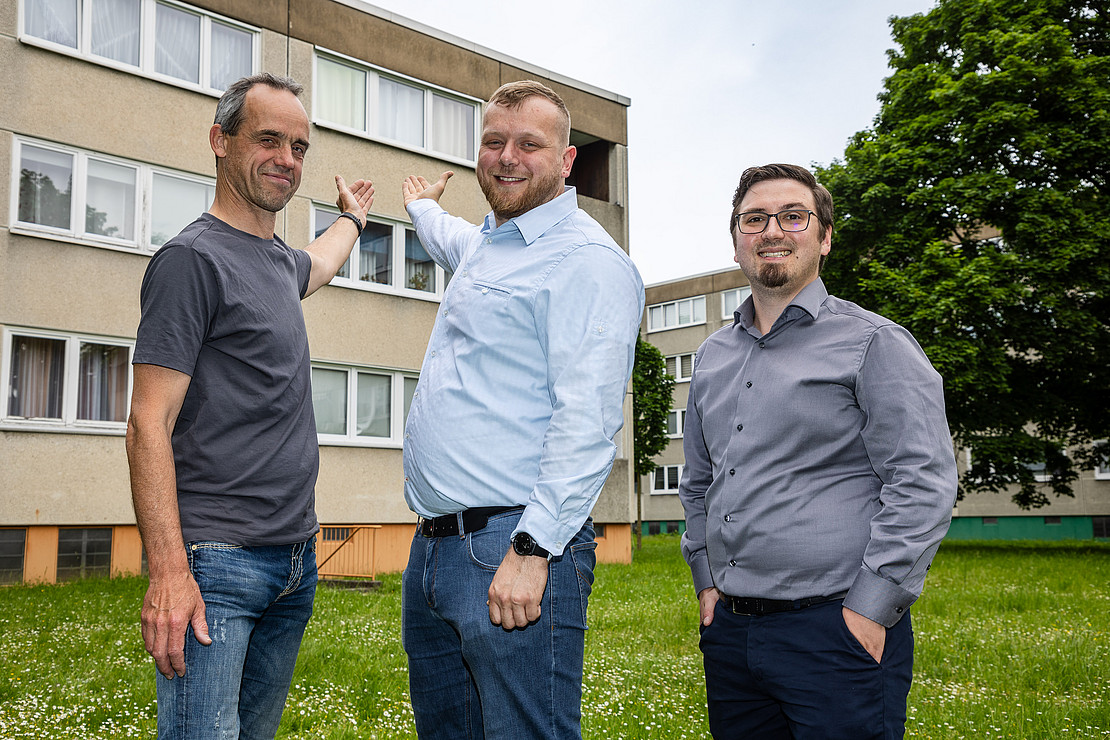This page contains automatically translated content.
Transparent solar window generates green electricity
 Image: Vonovia/Karsten Socher Photography
Image: Vonovia/Karsten Socher PhotographyThe special feature and development of the Plastics Technology department is a functionalized film: So-called quantum dots are integrated into the film, which are only a few nanometers in size, consist of a semiconductor material and can generate light; they capture solar energy. The radiation is then re-emitted with a red shift and partially trapped in the glass. The trapped radiation is converted into electrical energy at the edge of the window by attached photovoltaics and can be used there.
Another major advantage of this technology is its transparency, as the film can be applied to any window without impairing the appearance of the façade. This means that it can also be used in residential buildings. In addition, energy can be gained in places that were previously inaccessible.
The efficiency of the system developed as part of the CoSoWin project is now being evaluated in a Vonovia apartment in Kassel. In future, for example, tenants will be able to charge their cell phones using a USB port that is supplied with solar power directly from the window.
This is a prototype for the time being. "We are delighted that the window we developed has now been installed and can be tested and further developed under real conditions," explains Matthias Koch, research assistant at the Institute of Materials Technology, Department of Plastics Technology at the University of Kassel.
"We hope that this technology will be an effective addition to our expansion of photovoltaic systems," explains Martin Schottek, advisor for climate-neutral buildings at Vonovia. "The test phase will now show whether solar windows can make a further contribution to the energy transition and to reducing CO2 emissions in our neighborhoods."
CoSoWin was funded by the Federal Ministry for Economic Affairs and Climate Protection as part of the German government's 7th Energy Research Program. In addition to Vonovia, the Fraunhofer Institute for Solar Energy Systems ISE, the Fraunhofer Institute for Applied Polymer Research IAP, echnoform Glass Insulation Holding, Walter Fenster und Türen and xCave Technology were also involved in the project.
The integration of functions into material components, as exemplified by a plastic film in this project, is a central research area of the BiTWerk - Biological Transformation of Technical Materials research cluster(www.uni-kassel.de/go/bitwerk).
Contact:
Matthias Koch
University of Kassel
https://www.uni-kassel.de/maschinenbau/institute/werkstofftechnik/fachgebiete/kunststofftechnik/team/wm-matthias-koch